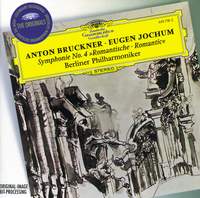As mentioned elsewhere last nights program featured Thomas Ades conducting.
Sibelius Night Ride and Sunrise
Rautavaara 2 Rhapsodies
Saraste Carmen Fantasy
R. Strauss Der Rosenkavalier Suite
The least familiar to me work was the Sibelius. For all the Sibelius on my shelves this is one piece that I was was scantily familiar with . Vintage Sibelius, but not his best champagne. There are many fun Orchestral effects at the Sunrise part, but the whole thing to me seems cobbled together from bits that were left out of En Saga, the 3rd Symphony, and Tapiola.
The Rautavaara pieces were featured on Hahn’s disc entitled “Paris”. The are pleasant, short lyrical bits that just sort of stop instead of reaching some sort of apotheosis. There isn’t any contrast between them and coupled with the Sibelius it made for an odd first half.
The temperature was definitely raised in the second half. There isn’t much to comment on HH virtuosity except “Wow”. After a few minutes you forget that it’s a violin playing the music and expect to see Tatiana Troyanos out there.
I usually don’t care much for the Rosenkavaler Suite, but this time its charms seduced me. I had no idea the Orchestra employed was so large. No one got the night off.
Ades as a conductor? He looks like a Zumba instructor. I thought he micromanaged rubato in the Sarasate instead of letting the music rip. Curiously his body language calmed down in the Strauss, which I thought was his best work
Sibelius Night Ride and Sunrise
Rautavaara 2 Rhapsodies
Saraste Carmen Fantasy
R. Strauss Der Rosenkavalier Suite
The least familiar to me work was the Sibelius. For all the Sibelius on my shelves this is one piece that I was was scantily familiar with . Vintage Sibelius, but not his best champagne. There are many fun Orchestral effects at the Sunrise part, but the whole thing to me seems cobbled together from bits that were left out of En Saga, the 3rd Symphony, and Tapiola.
The Rautavaara pieces were featured on Hahn’s disc entitled “Paris”. The are pleasant, short lyrical bits that just sort of stop instead of reaching some sort of apotheosis. There isn’t any contrast between them and coupled with the Sibelius it made for an odd first half.
The temperature was definitely raised in the second half. There isn’t much to comment on HH virtuosity except “Wow”. After a few minutes you forget that it’s a violin playing the music and expect to see Tatiana Troyanos out there.
I usually don’t care much for the Rosenkavaler Suite, but this time its charms seduced me. I had no idea the Orchestra employed was so large. No one got the night off.
Ades as a conductor? He looks like a Zumba instructor. I thought he micromanaged rubato in the Sarasate instead of letting the music rip. Curiously his body language calmed down in the Strauss, which I thought was his best work


 . The Dorati recording, made in February 1969, may have been the first recording of Luonnottar published in Britain. The first made was probably Schneevoigt's, at a Queen's Hall concert in 1934, though this was unpublished til the mid-'70s. And the Curtin/Bernstein recording (passionate if a little screamy) dates from 1965.
. The Dorati recording, made in February 1969, may have been the first recording of Luonnottar published in Britain. The first made was probably Schneevoigt's, at a Queen's Hall concert in 1934, though this was unpublished til the mid-'70s. And the Curtin/Bernstein recording (passionate if a little screamy) dates from 1965.
Comment